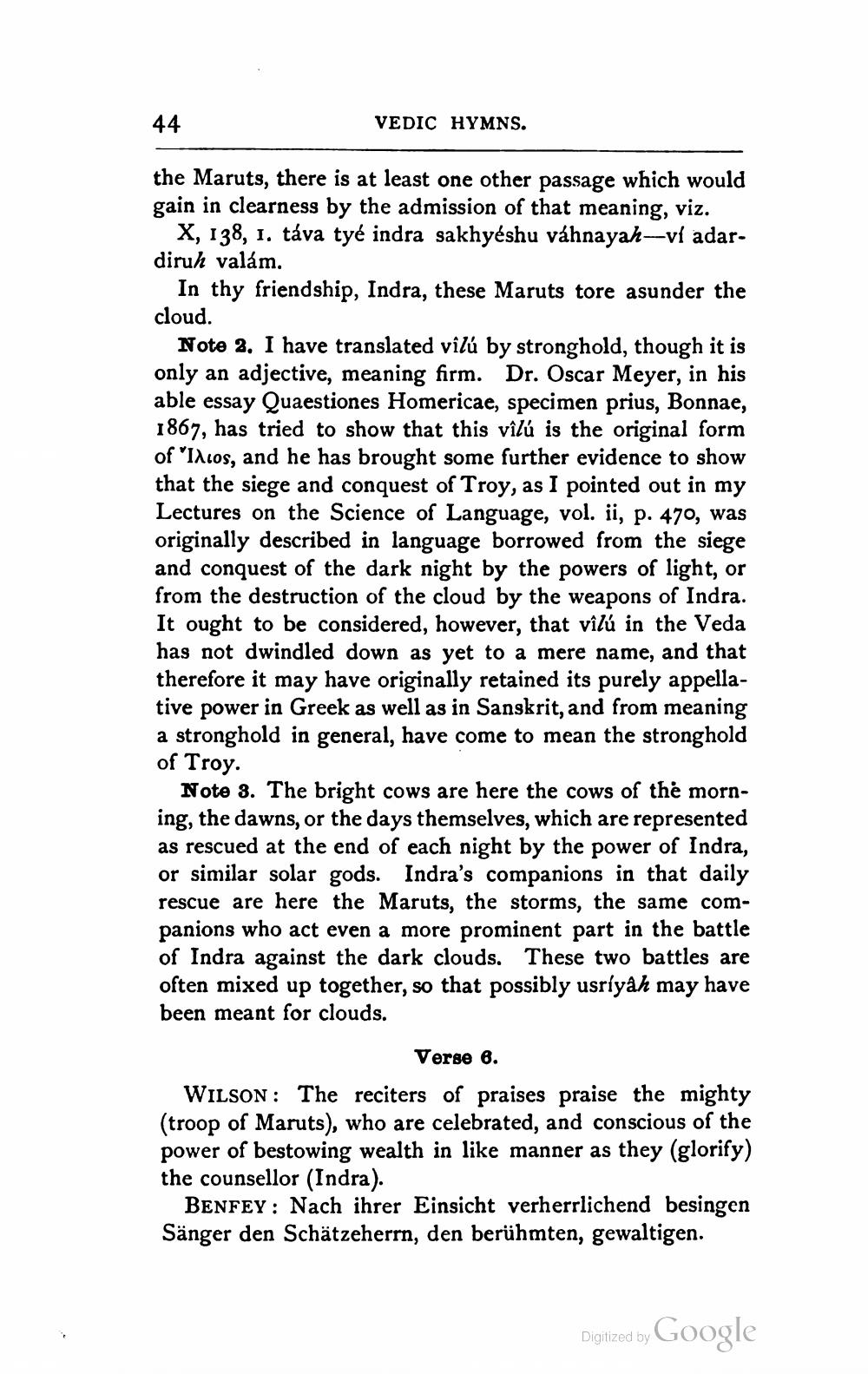________________
44
VEDIC HYMNS.
the Maruts, there is at least one other passage which would gain in clearness by the admission of that meaning, viz.
X, 138, 1. táva tyé indra sakhyeshu váhnayah-ví adardiruh valam.
In thy friendship, Indra, these Maruts tore asunder the cloud.
Note 2. I have translated vîlú by stronghold, though it is only an adjective, meaning firm. Dr. Oscar Meyer, in his able essay Quaestiones Homericae, specimen prius, Bonnae, 1867, has tried to show that this vîlú is the original form of 'Iacos, and he has brought some further evidence to show that the siege and conquest of Troy, as I pointed out in my Lectures on the Science of Language, vol. ii, p. 470, was originally described in language borrowed from the siege and conquest of the dark night by the powers of light, or from the destruction of the cloud by the weapons of Indra. It ought to be considered, however, that vilú in the Veda has not dwindled down as yet to a mere name, and that therefore it may have originally retained its purely appellative power in Greek as well as in Sanskrit, and from meaning a stronghold in general, have come to mean the stronghold of Troy.
Note 3. The bright cows are here the cows of the morning, the dawns, or the days themselves, which are represented as rescued at the end of each night by the power of Indra, or similar solar gods. Indra's companions in that daily rescue are here the Maruts, the storms, the same companions who act even a more prominent part in the battle of Indra against the dark clouds. These two battles are often mixed up together, so that possibly usriyah may have been meant for clouds.
Verse 6. WILSON: The reciters of praises praise the mighty (troop of Maruts), who are celebrated, and conscious of the power of bestowing wealth in like manner as they (glorify) the counsellor (Indra).
BENFEY: Nach ihrer Einsicht verherrlichend besingen Sänger den Schätzeherrn, den berühmten, gewaltigen.
Digized by Google




